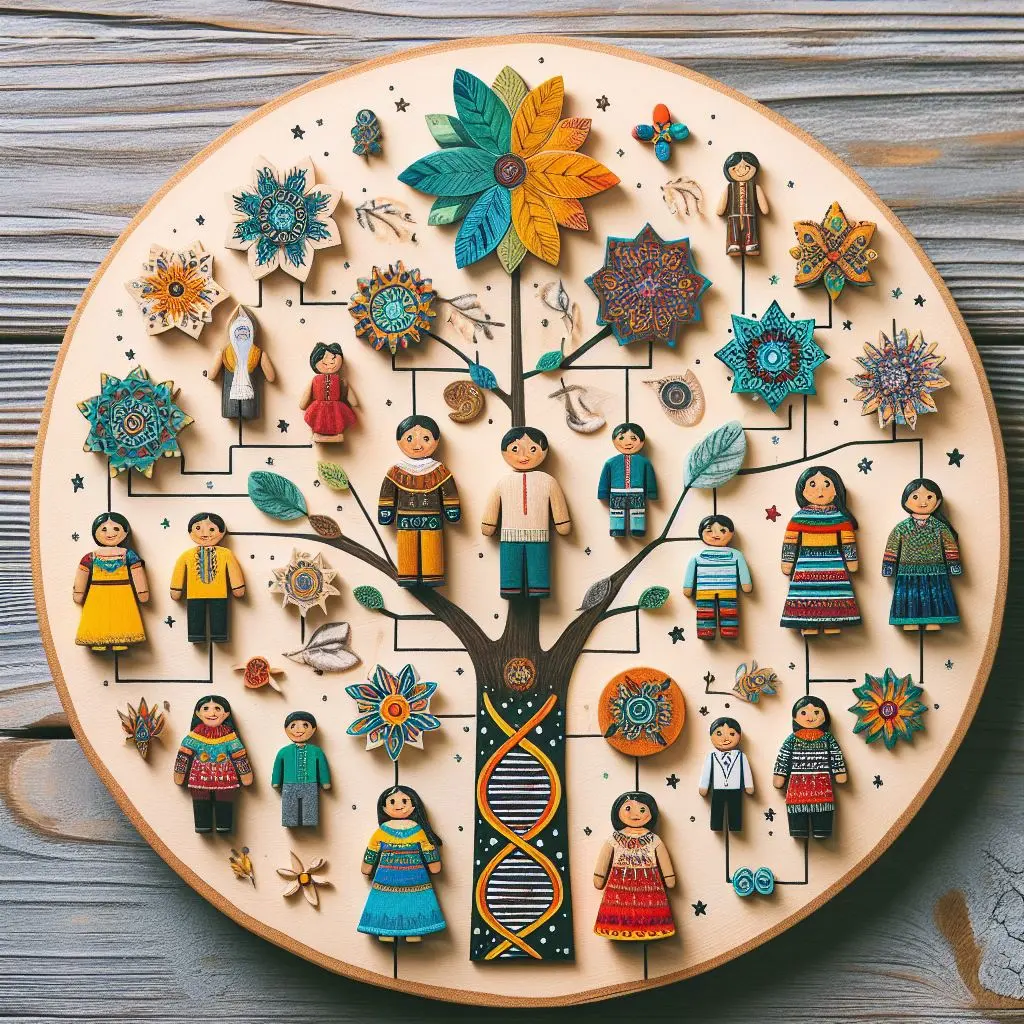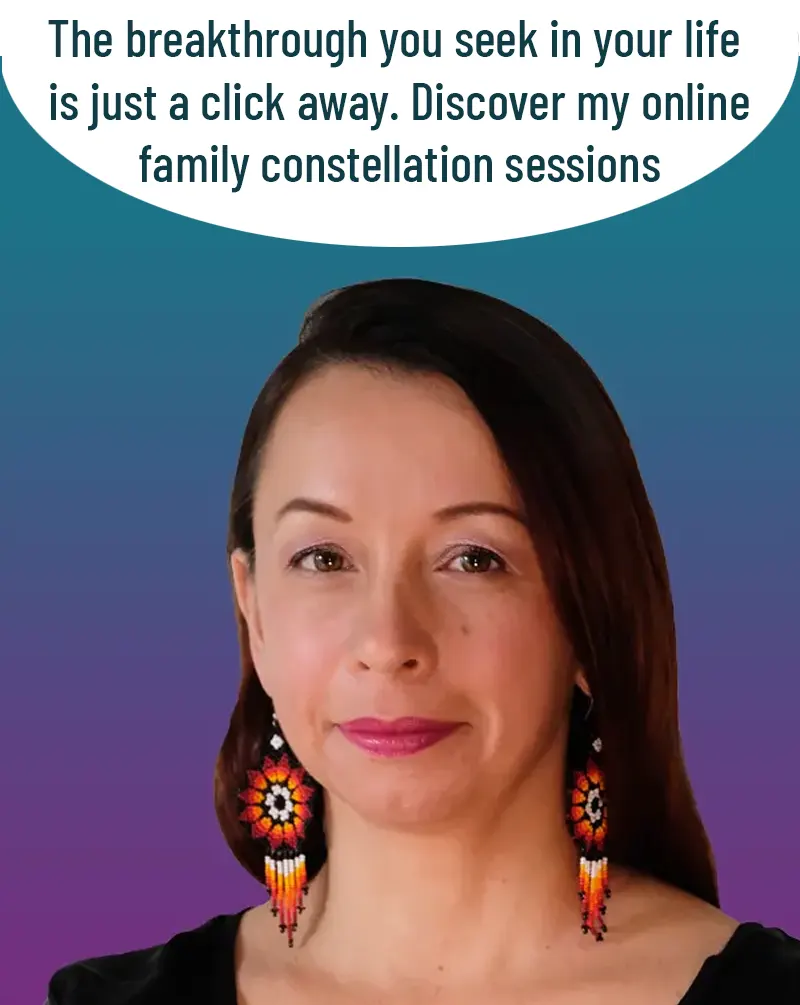The Missing Twin: A Systemic and Epigenetic Look at a Silent Absence
Published August 14, 2018

Table of Contents:
- What is the Lost Twin Syndrome?
- These are some common expressions of the missing twin syndrome:
- 🌿 A Real Case: Anne's Story
- There is not always medical evidence, but there are emotional and symbolic indicators that can provide guidance:
- How do we work with Family Constellations?
- ✨ Healing phrase:
- Benefits of recognizing the lost twin
- Epigenetics and Prenatal Memories
- Do you feel that this story could be yours?
- What is the Lost Twin Syndrome?
- These are some common expressions of the missing twin syndrome:
- 🌿 A Real Case: Anne's Story
- There is not always medical evidence, but there are emotional and symbolic indicators that can provide guidance:
- How do we work with Family Constellations?
- ✨ Healing phrase:
- Benefits of recognizing the lost twin
- Epigenetics and Prenatal Memories
- Do you feel that this story could be yours?
Do you feel that something invisible is preventing you from living fully?
Do you find it hard to enjoy success, as if something is holding you back?
Is there an old sadness that you can't explain?
Do you feel that someone is missing in your life and you don't know who?
Do you tend to merge emotionally with others and then find it hard to let go?
Do you carry a sense of loneliness or guilt without apparent cause?
If any of these questions resonate with you, you may be carrying a deep, forgotten memory: the experience of a lost twin.
What is the Lost Twin Syndrome?
In the Family Constellation approach, a "lost twin" is a sibling who was gestated with you during the first weeks of pregnancy but did not make it to term. Medicine recognizes it as vanishing twin syndrome (VTS). Prenatal genetic studies (Boklage, 1990; Blackmore & Campbell, 1993) suggest that between 30% and 50% of pregnancies begin as multiple pregnancies, although only one of the embryos is ever born.
The body can reabsorb the embryo without leaving obvious clinical traces, but the psyche and the emotional system do register this loss. From a systemic point of view, this interrupted link leaves emotional, energetic and bonding traces that are activated in adult life without our knowing why.
How does this experience manifest itself in adult life?
These are some common expressions of the missing twin syndrome:
Persistent sadness for no clear reason
Feeling of emptiness or incompleteness
Symbiotic relationships: excessive attachment, fear of separation
Difficulty in enjoying success or in "shining"
Unconscious feeling of guilt for having survived
Idealized search for a "soul mate".
Need to live "for two", with excess of responsibility
These dynamics are often unconscious and epigenetic, i.e. encoded not only at the emotional level, but also at the cellular and transgenerational level, as demonstrated by authors such as Mark Wolynn, Anne Ancelin Schützenberger and Bert Hellinger.
🌿 A Real Case: Anne's Story
Anne, 38 years old, successful and surrounded by affection, came to consultation saying:
"I have a good life, but I don't feel it mine. It's as if something has always been missing from me."
During a family constellation, the clear image of a twin emerged. Anne, having no prior knowledge of this possibility, burst into tears as she listened:
"Dear brother, I felt you. I didn't know who you were, but today I recognize you."
By giving him a symbolic place in her system, something profound was ordained.
Weeks later, Ana shared:
"I feel a peace I never knew. I no longer have to live for two."
How do you know if you had a missing twin?
There is not always medical evidence, but there are emotional and symbolic indicators that can provide guidance:
Bleeding or threatened miscarriage in the first trimester.
Repetitive dreams of "someone leaving" or sensations of duality
Unexplained feelings of loss or grief since childhood
Maternal narratives such as: "I felt two coming".
Early ultrasound scans with two embryos or gestational sacs
Fears of loneliness or abandonment for no apparent reason.
How do we work with Family Constellations?
In a Family Constellation session, we do not need medical tests. The systemic field reveals what the soul already knows. Through a symbolic and ritual representation, the absent twin is given a place in the system, allowing the survivor to stop carrying a life that does not correspond to him.
✨ Healing phrase:
"Dear brother, although your passing was brief, you left an eternal imprint on my soul. Today I recognize you, I give you a place, and with love I let you go. I choose to live my life in peace, for myself and for you. "
Benefits of recognizing the lost twin
Release of unconscious burdens
Reconnection with vital energy
Inner peace and emotional clarity
Improved affective relationships (less symbiotic or fusional)
Increased ability to enjoy success, joy and life
Epigenetics and Prenatal Memories
Authors such as Rachel Yehuda and Nessa Carey have shown how intense emotional events can be encoded in biology through epigenetic mechanisms. Unexperienced or unacknowledged prenatal grief can affect the expression of genes related to stress, anxiety, and emotional bonding.
Perinatal psychology and the studies of Thomas Verny and David Chamberlain also support the idea that intrauterine life profoundly influences our later behavior.
Conclusion
The missing twin is not a metaphor. It is an emotional and often epigenetic reality that can profoundly shape the way we bond, love and live.
Acknowledging this absence is an act of deep love. Making room for it frees our system and allows us to inhabit our lives with more presence, joy and fullness.
Do you feel that this story could be yours?
I invite you to explore this experience in a deep and caring space. A family constellation can open paths of understanding and healing that the rational mind alone cannot reach.



